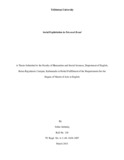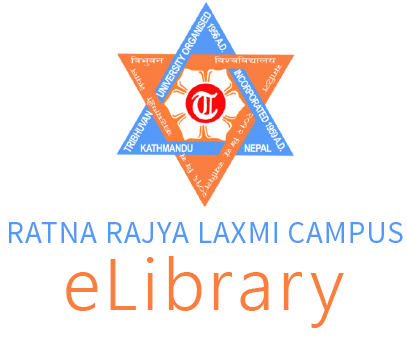Please use this identifier to cite or link to this item:
http://eibrary.ratnarajyalaxmicampus.edu.np:8080/handle/123456789/13| Title: | Social Exploitation in Poisoned Bread |
| Authors: | Adhikari, Hari Gahatraj, Subash |
| Keywords: | M.A. English |
| Abstract: | Caste system in India is based on exploitation. For example, the Mahars who are untouchables, lived a life of poverty, starvation, ignorance, insult and caste domination. The hierarchy of the caste ideology according to Hindu caste system leads the rank of caste and creates the class struggles among the caste. The upper caste people do respectful and prestigious work of mental labour. But lower caste people always engage in menial works like sweeping, cleaning, butchering and agriculture labour. Poisoned Bread depicts the social discrimination and injustice of Mahars sub caste that creats class struggles in the Indian society. The stories try to show the landlord’s exploitation over Mahar people. The short stories narrate the situation joblessness, poverty and starvation. The young people in village are suffered from poverty, discrimination. So they move to cities for searching work in textile, mills, dockyards because Mahars sub caste have no their own traditional occupation in village. Neither in the village Mahars are treated well nor in cities. They also lack any dignity, respect and wages for their labour. Influenced by Hindu caste ideology upper caste people believe superior themselves and inferior to lower caste and behave same things. Women from lower caste are more suppressed due to thrice alienation by Hindu patriarchal system, caste ideology and power. Women characters from Mahars subcastes in stories are treated more suppressed on their voice and freedom. It is believed that women from lower caste are impure and weak so they are sexually exploited by upper caste people. Thus, the short stories of Poisoned Bread narrate the suffering and cruel condition of downtrodden and women who are known as socially excluded group in community. The stories sketch the cruel condition of poverty and social discrimination over Mahars. The narration of exploitation in short stories certainly shatters the idea of a harmonious society. |
| URI: | http://202.45.147.228:8080/handle/123456789/13 |
| Appears in Collections: | Theses |
Files in This Item:
| File | Description | Size | Format | |
|---|---|---|---|---|
| 6–2–40–1630–2007_Gahatraj_Subash.pdf | 445.1 kB | Adobe PDF |  View/Open |
Items in DSpace are protected by copyright, with all rights reserved, unless otherwise indicated.
